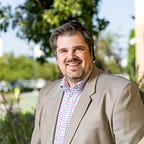The Essential Paradox of Worship
The Transcendence and Immanence of God in the Old Testament
An Abstract by Ian Yeung
“God is higher than my highest and more inward than my inner self.”[1]
There has been a considerable growth of research and writing addressing biblical and theological paradoxes. From some scattered early church fathers, such as Athanasius (a suffering Christ) to contemporary theologians like Søren Kierkegaard (an incarnated Christ), the tension (viewed by some as contradiction) between divine otherness and nearness, and concealment and revelation presented in the Scripture seemed like a battle of tug-of-war. Some scholars, such as William Placher, suggest that the bipolarity between the understandings of transcendence and immanence was a later idea originating in the seventeenth century: the more of God’s immanence, the less His transcendence connoted. Along with postmodern scientific hypotheses and theories, some contemporary scholars have tried to defend biblical-theological paradoxes and endorse the necessity and importance of paradoxes in both Christian faith and the understanding of God.
In regard to the prophetic understandings of YHWH in the Old Testament, Walther Eichrodt expresses the doctrine of God is “empirically verifiable and attested, on the one hand, and revelation on the other; between the known and the unknown; between the God who has come and the God who is yet to come.” Therefore, he concludes that “it is only if the real difficulty of this involvement in tension is grasped, namely that it allow man no rest, no halt for the setting up of secured positions, but only a reaching out in faith toward an as yet unseen Coming One, that we can begin to understand the stress which the prophets lay on their commissioning, endowment and constant guidance by Yahweh.”[2]
In this paper, I am first going to define the concepts of “paradox” and “contradiction” as well as divine “transcendence” and “immanence.” Perhaps it is crucial to examine if transcendence and immanence of God are really paradoxes to avoid attacking a “straw man.” I will then survey two Hebrew terms qrb and rbq that denote nearness and distance and their use in the Old Testament. Second, I will use three perspectives to analyze the paradoxical accounts of divine transcendence and immanence in the Old Testament. The first perspective is how YHWH Himself revealed the understanding of His holiness to Israelites through His “shrine”the Holy of Holies — in both the Tabernacle and Solomon’s Temple. The second perspective is to look at divine transcendence and immanence through biblical narratives. Scholars, especially those who follow Wellhausen’s JEDP hypothesis, argue that the Old Testament writings showed an evolution from more divine immanence to more of His transcendence through the development of J source to the latest P source. Besides, scholars like John W. Wright propose that later post-exilic writings showed a blurred line between divine transcendence and immanence. The third perspective is to explore the paradox through the lens of Old Testament spiritual expressions, namely the Book of Psalms, and see how the chosen people dealt with the tension in reality. In a summation of the three perspectives, I argue that it is not either/or nor neither/nor, but the repelling force between God’s transcendence and immanence that is necessary to propel Judeo-Christian worship. However, it is not the scope of this writing to do a compare-and-contrast work to the pagan worship of ANE in order to highlight the distinctiveness of Israel YHWH worship.
The preceding was an abstract of a research paper written by Ian Yeung as a part of MUMIN 7513 Research in Worship History: Old Testament, a Ph.D. Seminar in Worship at Southwestern Baptist Theological Seminary. If this topic interests you, feel free to click the author’s name above and request a copy of the research paper.
1. Augustinus, Bekenntnisse, transl., Joseph Bernhart, Frankfurt 1955, p. 264:ff.; Cf. St. Augustine, Confessions, transl. Vernon T. Burke, The Fathers of the Church Inc. N.Y., 1953, pp. 251–53. 2
2. Walther Eichrodt and J. A. Baker, Theology of the Old Testament, Vol. 1 (Philadelphia: Westminster John Knox Press, 1967), 389–390. 3
